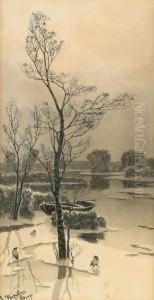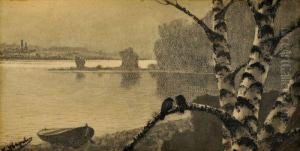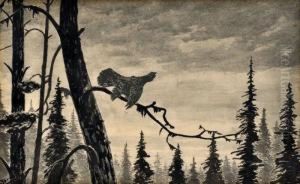Stepan Nikitovich Uvarov Paintings
Stepan Nikitovich Uvarov was not an artist in the traditional sense of painters or sculptors, but he played a significant role in the cultural and intellectual history of Russia as a statesman, historian, and archaeologist. Born on August 25, 1774, in the Russian Empire, Uvarov came from a noble family and received an education that was typical of Russian aristocracy, focusing on a wide range of subjects including literature, languages, and the arts.
During his career, he held various positions within the Russian government, most notably serving as the Minister of National Education under Tsar Nicholas I from 1833 to 1849. In this role, he was influential in shaping educational policy and is perhaps best known for his formulation of the triad 'Orthodoxy, Autocracy, and Nationality' as the guiding principles of the Russian state. This doctrine sought to reinforce the Tsarist autocracy and the Russian Orthodox Church while promoting a sense of Russian nationalism.
Uvarov was also deeply involved in scholarly pursuits. He was an active member of the Russian Academy of Sciences and contributed to the fields of history and archaeology with a particular interest in ancient Russian and Greek history. His work in archaeology included the study and preservation of historical artifacts, and he was responsible for initiating a number of archaeological excavations in Russia. His efforts in these areas helped lay the foundation for the systematic study of Russia's past.
As a historian, Uvarov wrote extensively on the history of Russia, and his works played a part in the development of Russian historiography. He amassed a significant personal library and was known for his patronage of the arts and sciences, which led to the enhancement of cultural institutions in Russia.
Uvarov's contributions to education, history, and archaeology mark him as a significant figure in Russian intellectual history, although he was not an artist in the sense of creating visual or literary works of art. He remained in public service until the end of his life, dying on September 4, 1855. His legacy is one of a statesman deeply engaged with the cultural and intellectual currents of his time, leaving an indelible mark on the academic and cultural institutions of Russia.



